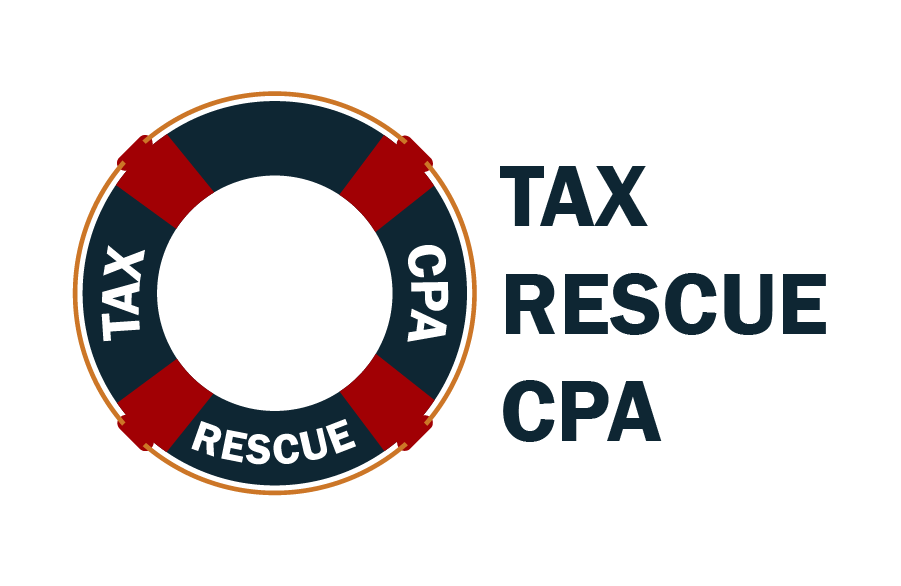The Respect that the IRS Owes You
Last month I detailed how the IRS can take your paycheck and your bank account balance, “Yes, the IRS Can Just Take Your Paycheck”. When the IRS gets to this point, it can feel like you have no choice but to just roll over and take whatever they dish out.
But you have rights! And those right are extensive and guaranteed by law when dealing with the IRS.
Of course, exercising those rights begins with knowing what they. You can find them outlined in IRS Publication 1, but what do they mean?
Let’s dive into each of the ten taxpayer rights and explain what they mean in plain English.
1. The Right to Be Informed
The IRS is not supposed to be a black box that just cranks out tax bills and takes your money. As a taxpayer, you have the right to know what’s going on with your tax matters, and the IRS is required to communicate with you in a clear, plain English manner about what you need to do and when.
Through legislation, Congress has mandated that the IRS simplify tax forms, instructions, and letters. This is obviously a tall order with something as complex as tax law, but if the IRS expects people to comply with those laws, the means to do so needs to be as clear as it possibly can be.
If you’re having an issue with the IRS, such as a tax debt or audit, they must clearly explain what they’re doing and why. They also need to explain what your options are and what they expect of you. Over the past 20 years, IRS notices have become progressively easier to read and understand. When you receive any letter from the IRS, don’t throw it away, as it contains valuable information.
2. The Right to Quality Service
In an era of 3-hour hold times to reach the IRS, this one might sound like a joke. But really, it’s what they’re supposed to do. When you get through to somebody at the IRS, they’re supposed to be professional and courteous, while explaining your options and requirements as simply as possible.
The IRS is not allowed to threaten or harass you in an aggressive manner. If you receive such a call from somebody claiming to be the IRS, be forewarned that it’s probably a scam call, not actually the IRS.
What’s also interesting about this one is that if you’re not receiving “quality service,” then you have the right to speak to any IRS employee’s immediate supervisor. This ability to escalate issues can come in handy when trying to get things done.
3. The Right to Pay No More than the Correct Amount of Tax
While it sounds straightforward, but the IRS juggling over 200 million different tax accounts, and mistakes are bound to happen. You have the right to have mistakes corrected and receive refunds when you are charged too much in tax, penalties, or interest.
The IRS has certain legal deadlines they must adhere to in regards to many tax matters. These deadlines are not negotiable — they are the law — and if the IRS tries to waffle on one of them, you have the right for that to be corrected. These deadlines can have a significant impact on what you’re billed by the government, so they’re worth paying attention to.
4. The Right to Challenge the IRS’s Position and Be Heard
Your government is not infallible. Shocking, I know — but it’s true. Sometimes the IRS screws up, and when they do, you should bring it to their attention, and they are required to hear you out.
From simple math errors on their part to incorrect assumptions during an audit to the improper garnishment of your wages, the IRS does make mistakes. Most of them are genuinely just that — mistakes — not malicious attacks that you should take personally. But their mistakes can have serious repercussions for you, and so the IRS needs to be held accountable, and you have the right to do just that.
If something the IRS sends you or does to you just doesn’t feel right, question it. Seek further explanation, and don’t rest until the numbers and the actions are correct.
5. The Right to Appeal an IRS Decision in an Independent Forum
Many of the actions the IRS takes against you personally, such as audits and collection actions when you owe them money, can be appealed to the independent IRS Office of Appeals. If you can’t get things resolved there, most (not all) issues can be taken to Tax Court, where you’ll have an opportunity to make your case to a judge.
Understand that many front-line IRS employees are grinding through dozens, if not hundreds, of taxpayer accounts at a time. These employees are under a lot of stress so it may feel as if they’re just trying to push your situation out the door sometimes. That doesn’t mean they get to railroad you, so be on the lookout for appeals opportunities, and take advantage of them to ensure that you are heard.
6. The Right to Finality
Tax problems aren’t something you want hanging over your head for eternity. Thus, you have a right to know how long the IRS can take actions against you, how long they’re going to take to process things, and what your deadlines are for responding.
Included in this right is the right to have tax problems wrapped up and done, such that they can’t be brought up again later. Thus, there are legal restrictions on certain IRS actions, such as how often they can audit the same tax return (unless there is evidence of fraud, of course) and how many years they can take collection action against you.
7. The Right to Privacy
Just because the IRS goes poking around your finances doesn’t mean that your Fourth Amendment rights against unreasonable search and seizure go out the window. The IRS should never pry into matters that are beyond your purview, should not delve into your private life or demand to know how you pay for your lifestyle if there is no evidence that you’re hiding income.
8. The Right to Confidentiality
In addition to these invasiveness provisions, the IRS must also follow all applicable laws in regards to protecting your personal information from being seen by the world. The IRS isn’t allowed to disclose your tax information to anybody without your permission, and cannot contact third parties for collection purposes without giving you advance notice.
The IRS is not immune to data breaches, and they are a juicy target for criminals. You have the right to know about such breaches, and the IRS is required to take action against their own employees, hackers, and even me as a tax professional if said individuals are the cause of such data leaks.
9. The Right to a Fair and Just Tax System
I know this one sounds like a joke. None of us are ever going to completely agree on precisely what constitutes a “fair” tax system, but that’s not exactly what this right is about.
Rather, this right refers to the IRS treating you fairly in all matters. They are required to consider your specific, individual circumstances when making decisions that affect you. The IRS is supposed to be respectful of personal issues that impact your ability to pay, file returns, or provide certain documentation.
Above all else, the IRS is not allowed to put you in a position where you no longer have a roof over your head or food on the table.
10. The Right to Retain Representation
Officially, this is actually number nine on the Taxpayer Bill of Rights, but I’ve bumped it to the final slot because this is where I come in. Given how complex tax matters can be, and how much of a nightmare it can be to navigate the IRS bureaucracy, sometimes you just want help from an expert that does this every day.
You have a legal right to seek such help, and I’m here to provide that assistance if you need it. If you’re facing an IRS issue and want to make sure that your rights are protected, let’s talk.
Jeff Roltgen, Tax Rescue CPA
Jeff@TaxRescueCPA.com
www.TaxRescueCPA.com

Free Report >>> Get the 7 Tax Relief Secrets the IRS Hopes You Don’t Know








